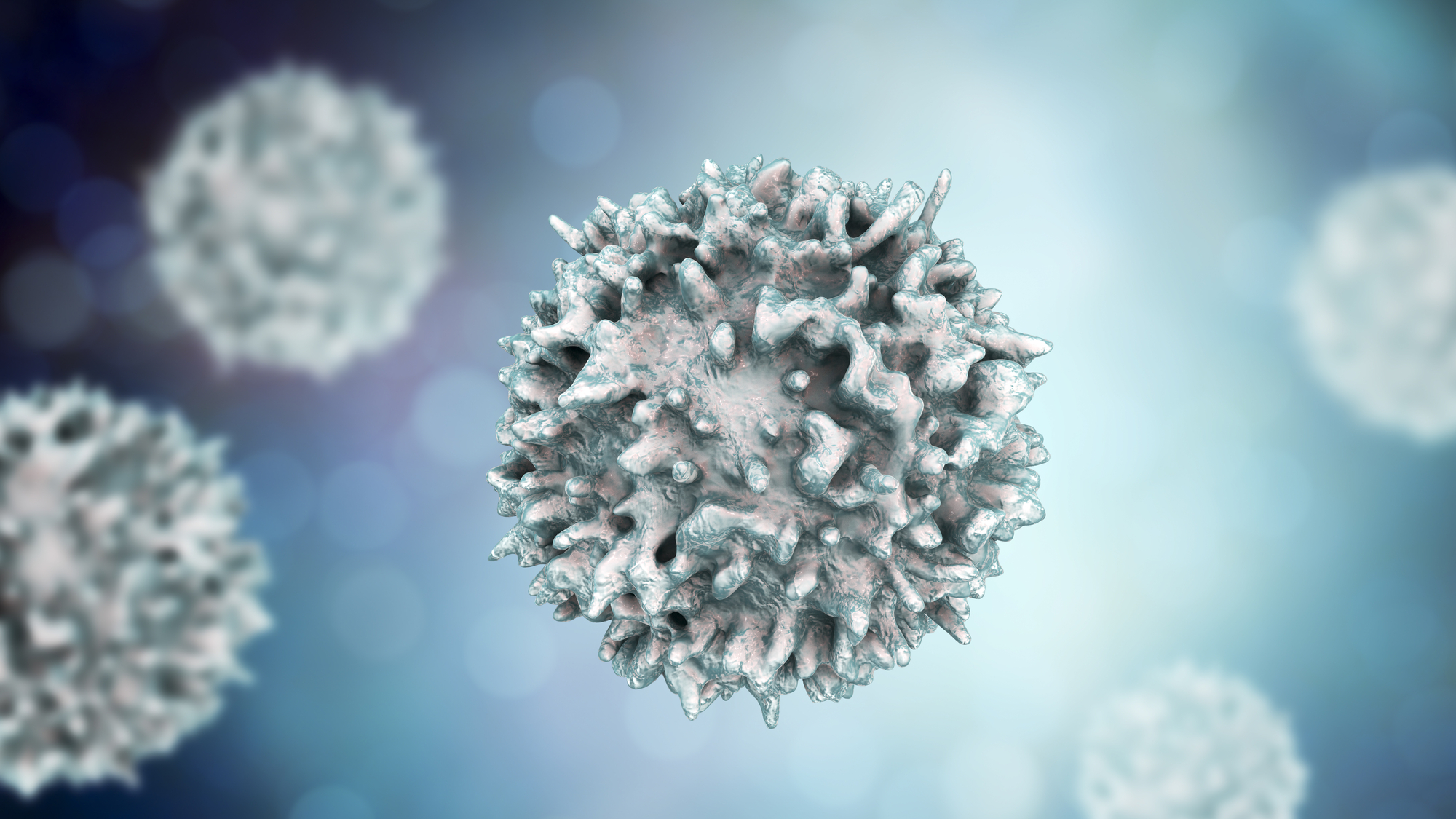

Everyone’s immune system is unique. The way it responds to an incoming threat depends on your genetics, lifestyle, and other factors. But all healthy human immune systems have a first line of defenders: When a germ or infection appears, white blood cells called T cells spring into action against the menace.
But what if your body’s natural defense system fails? For people with autoimmune disease, this question is their reality. For reasons scientists have not been able to figure out yet, the immune response mistakenly attacks its own healthy cells, struggling to distinguish between ally and enemy. There is no cure for autoimmune disease, because each situation may be different—making it vital to have a treatment tailored to a patient’s needs.
An experimental clinical trial introduces a new approach to managing autoimmune diseases. Published in The Lancet Neurology last week, the authors report the first results from a study of chimeric antigen receptor (CAR) T cell therapy on a rare form of autoimmune disease called myasthenia gravis. In CAR T therapy, doctors re-engineer a person’s immune system to identify, attack, and destroy certain proteins on cell surfaces. The modified treatment was safe to use and improved the symptoms of a 14 group of people living with the condition.
“This is a remarkable new approach to treating autoimmune disorders with a newer safer, easier CAR T approach,” says Santosh Kesari, a neuro-oncologist and regional medical director of Providence Southern California, who was not involved in the study. While Kesari finds the study “exciting,” he cautions that understanding the true benefit of CAR T therapy depends on the results of randomized double-blind trials—this study was a proof-of-concept to test the safety of administering this treatment to this particular patient population.
[Related: A ‘living’ cancer drug helped two patients stay disease-free for a decade]
Study participant Danny DeBerry, who had myasthenia gravis for 14 years, tells Popular Science in a statement that after multiple doses, the therapy restored his ability to work and travel. “Recently, I went on vacation with my lovely wife and was able to go on a 10-mile bike ride,” he says. “I’m now in full remission and feel like I gained 15 years of my life back.”
The treatment has its origins as a cancer therapy, which helps stop the cells involved with the formation and spread of tumors. While effective, traditional CAR T therapy has some downsides. The process requires collecting T cells, removing them from the body, altering the cell’s DNA in a lab, and reinserting them back into the patient. The newly engineered T cells may ramp up the immune system too aggressively, releasing a large number of chemicals called cytokines into the blood.
These cytokines create an inflammatory response to infection or cancer that, if prolonged, can damage healthy cells as well. CAR T cell therapy is also associated with substantial neurological complications. The current study used RNA instead of DNA to genetically engineer the cells to last for a finite life period. T cells engineered with DNA can instead live much longer, creating the negative effects.
In the trial, using a CAR T therapy developed by Maryland-based biopharmaceutical company Cartesian Therapeutics, these white blood cells were altered to recognize a marker called B cell maturation antigen (BCMA). That marker signals cells to produce antibodies. In myasthenia gravis, these antibodies destroy healthy tissue that connect nerves and muscles. People with the condition show signs of droopy eyelids, have a weakness in their arms or legs, and, in the most severe cases, can struggle to breathe or swallow, explains lead author James Howard, a professor of neurology at the University of North Carolina at Chapel Hill.
[Related: Doctors successfully treat two babies with leukemia using gene-edited immune cells]
The authors administered three different doses of CAR T therapy to figure out the highest dose that people could tolerate. Each person then received six doses of the maximum dose. A three to nine month follow-up showed only minor side effects with the maximum dose. The most mild after-effects involved headache, nausea, vomiting, and fever, which all went away 24 hours after the last infusion. More importantly, the authors did not notice any signs of neurotoxicity and an inflammatory condition called cytokine release syndrome—two severe side effects common with traditional CAR T therapy.
The small trial was a proof-of-concept only—assessing the side effects and clinical improvements would warrant a much larger study. The authors are currently in the midst of a phase 2 trial on the treatment’s effectiveness with a larger pool of participants. Howard says based on the data they collect, there may be plans to move forward with a regulatory trial for drug approval.
If additional trials show positive results, people with conditions other than cancer, such as those with dysfunctional immune systems, could benefit from regular CAR T therapy. One question that needs to be answered is how often patients need this treatment. Since this type of CAR T therapy uses cells that live for a limited amount of time, it won’t be a one-and-done infusion. Howard says longer and larger trials in the future will determine how often a person has to get retreated. However, he says, “if we can achieve results that will last years, that will be highly transformational to individuals with autoimmune disease who might only need to be treated once a year.”
